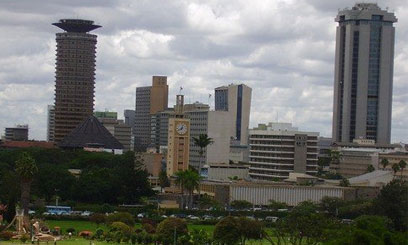NAIROBI, Kenya, Oct 19 – The International Monetary Fund is urging policymakers in the continent to formulate policies that take into account the emerging challenges from global financial problems.
While describing the global economy as undergoing a dangerous phase, the IMF says Kenya, as well as other sub Saharan economies, cannot continue relying on emerging markets to shield it from an impending economic slowdown.
IMF Director of African Department Antoinette Sayeh said on Wednesday that if advanced economies’ growth slow further, they expect import demand to reduce lowering growth in many of the large emerging markets.
“Global financial volatility and a sharp slowdown in growth in advanced countries would affect sub Saharan Africa by subduing export demand and private financing flows, restricting growth particularly in the region’s more integrated economies,” Sayeh said.
Sayeh said policy makers need to tread a fine line between addressing the challenges posed by strong growth and preparing to ward off the potentially adverse effects of another global downturn.
“Volatility in commodity markets could cause further disruptions in macroeconomic balances, with both winners and losers within the region,” she said.
The IMF forecast however painted a positive outlook for Sub Saharan Africa growth in 2012 but warned of significant risks from global financial volatility that could subdue demand and private inflows into Africa. It expects growth in the region to reach 5.25 percent in 2011 and 5.75 percent in 2012.
The Central Bank of Kenya has been under immense pressure to stabilize inflation, which has been rising over the last eight months since January.
Although it has traditionally responded to inflationary pressure with a tightening of monetary policy, a fragile growth and a build-up of public debt to more than half the gross domestic product has made the Kenyan situation much more complex.
In a recent move, the CBK’s Monetary Policy Committee raised its benchmark lending rate by four hundred basis points from seven percent to 11 percent, beating market expectations.
Sayeh said the country was in the right track and encouraged such decisive steps to be taken in future. She warned of inflationary risks amid solid expected growth and the dangers of a sustained global slowdown as major factors that policymakers will have to put into consideration.
At the same time, Sayeh said Sub-Saharan Africa need to continue to invest in growth and employment, which is critical for sustained poverty reduction, highlighting there was an apparent disconnect between growth and poverty outcomes.
“One important link in the chain between economic growth and poverty reduction is growth in agricultural employment,” she said.



































